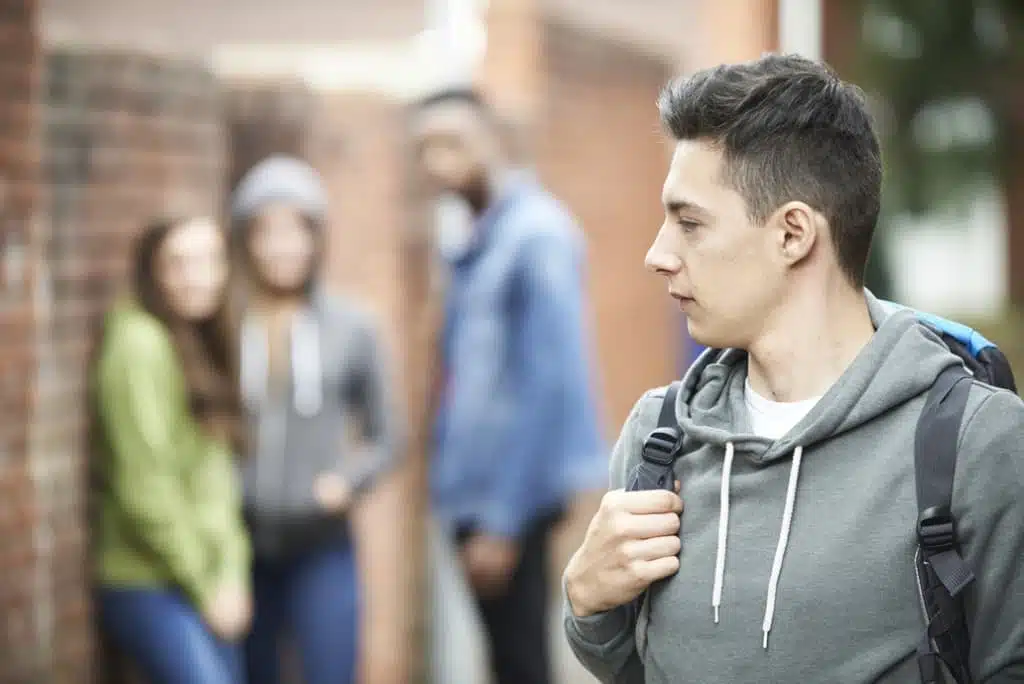Gangs preyed on vulnerable young people during COVID related lockdowns to criminally exploit them, Barnardo’s has warned.

The children’s charity warns that while young people are increasingly at risk of exploitation, police and other agencies often lack the training and knowledge to effectively protect vulnerable youngsters.
Barnardo’s interim co-CEO Michelle Lee-Izu said: “Barnardo’s has long warned about the growing threat of child criminal exploitation, so it is alarming that agencies are still too often failing to identify victims, even when there are clear signs of harm.
“Our services are supporting children as young as nine who are being criminally exploited, and we’re deeply concerned that without government action the problem will spiral even further out of control. These children are victims and need the right support to help them recover, rather than being criminalised. Yet evidence from our frontline workers shows children and families can experience months of exploitation, fear and violence before help arrives.”
Barnardo’s has warned that during the Covid-19 pandemic, organised criminal gangs moved their exploitation of children into busier public places like supermarket carparks, where it was easier to conduct activity during lockdowns without arousing suspicion.
Following months of isolation from trusted adults such as teachers and with many families struggling to pay bills or put food on the table, gangs have also been preying on these vulnerabilities when targeting young people and entice them with a promise of ‘easy’ money.
Youth workers and frontline child criminal exploitation (CCE) practitioners also say that young people who had been coerced to carry drugs were forced to wear delivery driver uniforms or high vis jackets, allowing them to hide under the disguise of legitimate activities.
There has also been a rise in children and young people being targeted by criminal gangs online, Barnardo’s frontline workers have warned:
- In 2020, more children than ever before were identified as potential victims of trafficking with exploitation being the most prevalent cause.
- The number of children assessed by children’s social care of being at risk from gang involvement in 2020 increased from 10,960 to 14,700.
- Those involved in trafficking rose from 2,490 to 3,010, and children involved in drug misuse increased from 23,710 to 29,170.
- In 2019/20 nearly 7,000 children were arrested for drug offences.
- A further 2,063 were charged with weapon offences. Many of these children will have been groomed and exploited to commit these offences.
Despite the increased risk, Barnardo’s says there is still too often a lack of clear understanding or consistency from relevant professionals, such as the police, social care and health, of how children are exploited by criminals or how to support them rather than criminalise them. According to Barnardo’s services, identification and referral often comes after months or years of exploitation.
Barnardo’s made a Freedom of Information Act request asking police forces about the number of CCE victims in their areas.
Although the majority of relevant police forces (30 out of 47) replied to the FOI request, only one police force was able to provide any significant data on the criminal exploitation of children in their area.
Most said the only way to fully answer the request would be to carry out a prohibitively expensive manual search of arrest reports, while some even asked what crimes constituted CCE.
Barnardo’s says if police forces are not routinely identifying and recording possible CCE and there aren’t enough resources for agencies to investigate how or why a child has been coerced into criminal activity, it is inevitable that victims will continue to be criminalised rather than safeguarded.
The charity is urging the government to make changes to the Police, Crime, Sentencing and Courts Bill. A legal definition of child criminal exploitation should be included in the bill, which would bring the approach to child criminal exploitation in line with the approach to child sexual exploitation. Defining child sexual exploitation in law in 2016 has helped frontline professionals to better identify child victims and those at risk.
It also wants the Serious Violence Duty on local agencies, which is included in the Bill to ensure every local area develops a strategy to specifically tackle CCE and serious youth violence.
Barnardo’s is also calling on the government to increase specific funding for youth services, as part of a wider package of early intervention support in every community.
Michelle Lee-Izu added: “We know children who have already had a tough start in life are particularly vulnerable, including those in foster care and residential care, and children who have been excluded from school.
“That’s why we’re calling on the government to change the law so that children who are being exploited by gangs are identified and supported early. It’s also vital that this month’s Spending Review includes long-term, sustainable funding for local areas to invest in youth services, counselling and other support for young people at risk,” she concluded.


